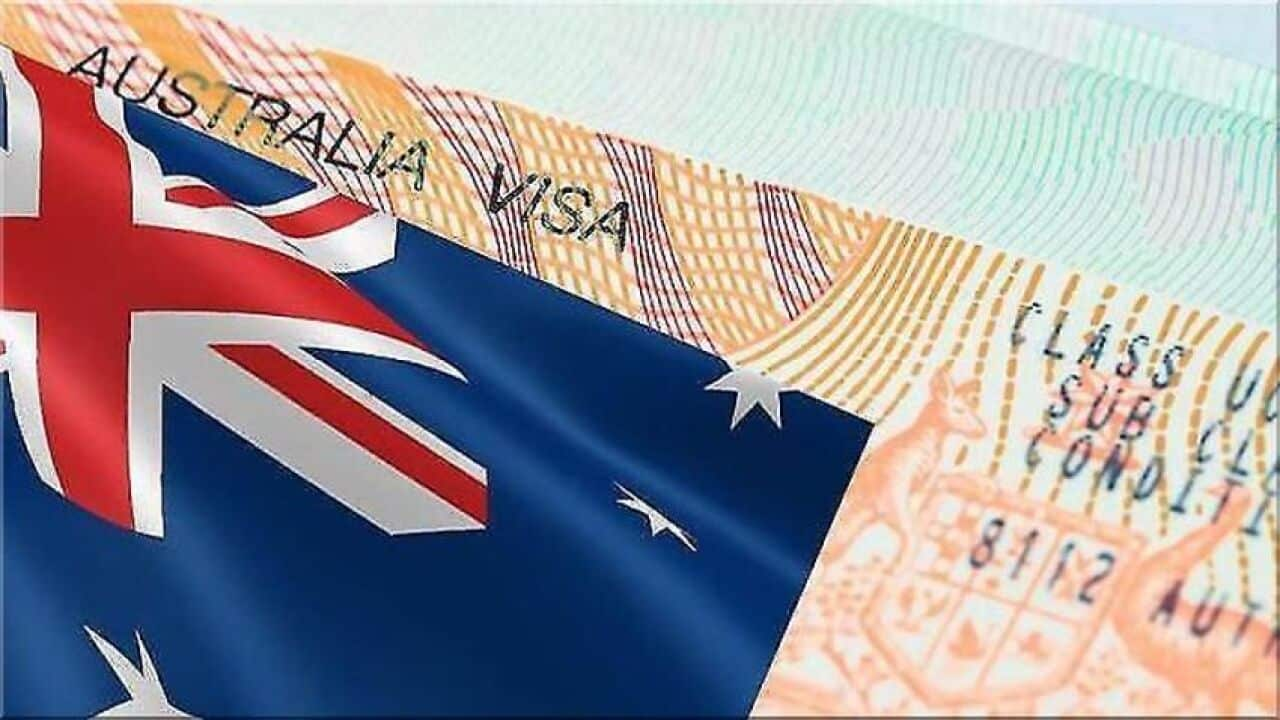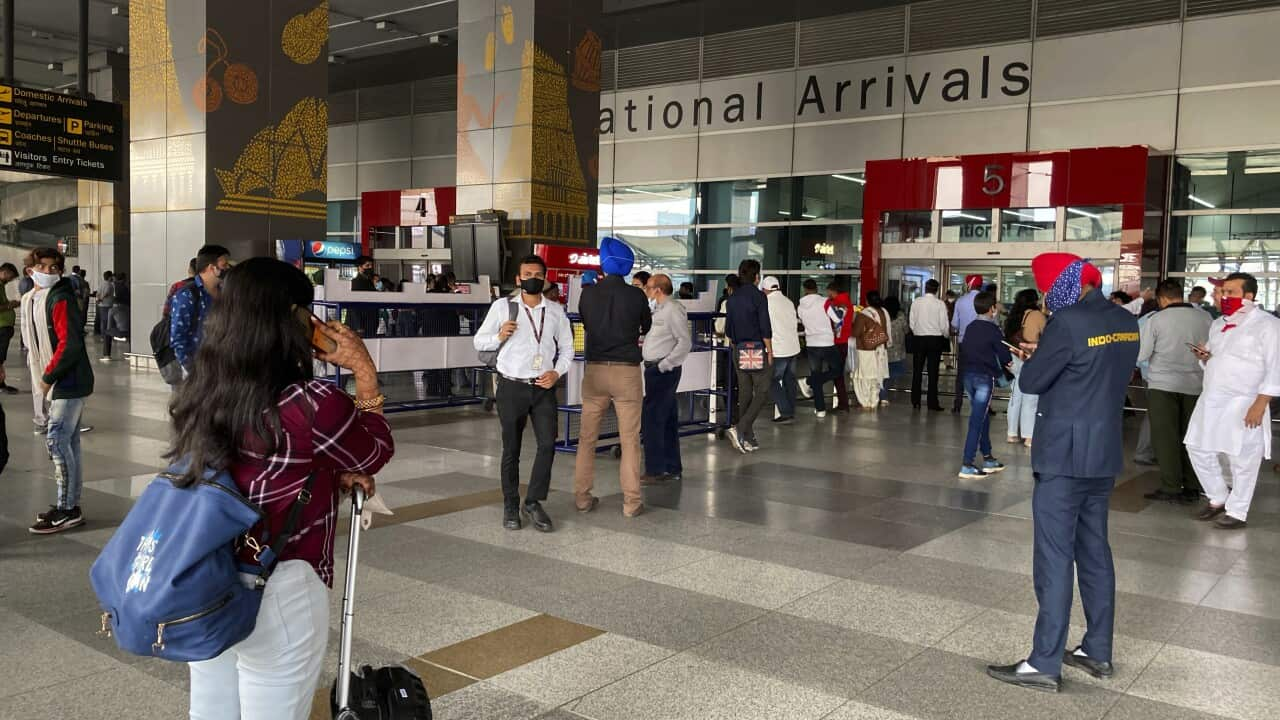Key Points
- Some Australian universities have temporary blocked student visa applications from Punjab and Haryana states in north India.
- There's been an increase in incomplete applications and presentation of fraudulent information and documentation in student visa applications: Department of Home Affairs.
- 'We are not taking any direct applications from Punjab and Haryana': Torrens University.
Karandeep Singh*, a student from Ludhiana in Punjab, was keen to pursue a bachelor's degree in information technology from a prestigious university in Adelaide
After scoring 95 per cent in his class 12 exams and securing seven bands overall in IELTS, he applied for a student visa on 9 January 2023.
But his Australian dream was stifled when he received a rejection earlier this week.
Mr Singh, who doesn't want to disclose his real name fearing further visa repercussions, says he is "heartbroken" and currently exploring other global academic destinations.
"I am an accomplished student with a good academic score, but still, I was rejected because the authorities believe I am not a genuine applicant for entry and stay in this country," he tells SBS Punjabi.

Snapshot of a part of an email received by Mr Singh, who's visa was rejected in February 2023.
Migration agents claim hundreds of students have been impacted by a sharp rise in visa refusals from north Indian states in the past few weeks.
According to the figures, while offshore student visa lodgements from India increased from 7,008 in December 2022 to 9,669 in January 2023, the trend isn't converting to similar records of visa grants for applicants from India.
The grant rate fell from 87.5 per cent in December last year to 79 per cent in January 2023.
Where do the universities stand on the issue?

Torrens University says it's not taking any direct applications from Punjab and Haryana. Credit: Public domain
Melbourne-based Torrens University conceded they were not taking any direct applications from Punjab and Haryana.
The university spokesperson said they were only considering applications from these states deemed "very strong, of high quality and endorsed by our agents in India."
"This is a reasonable approach because if students apply from these regions and their visas are refused, any future visa applications could be jeopardised. By putting a temporary hold on accepting general applications from the named states, we are minimising long-term risks to students," the spokesperson said.
Melbourne's Southern Cross University said they assess all students based on their academic entry criteria.
"For onshore international students, we take into careful consideration the Department of Home Affairs requirements for all applicants on a student visa.
"We continue to adjust our settings in response to a range of factors in the market," the SCU spokesperson said.
A Flinders University spokesperson said they are actively recruiting from across India and have students from Haryana state and other northern regions enrolled and joining the institution to study in 2023.
However, the spokesperson added, "they monitor and manage risk in all markets in line with Department of Home Affairs advice and expectations."
Meanwhile, in an email seen by SBS Punjabi, Western Australia's Edith Cowan University wrote to agents on 15 February informing them that they have temporarily suspended international recruitment from Punjab and Haryana for all undergraduate courses.
In the email, an ECU representative wrote that the step is being taken "due to an increase in the number of visa refusals from these regions, as well as concerns raised regarding students' academic progress, and we want to take the necessary precautions to protect the interests of genuine students."
As stated in the email, any applications via their on-campus pathway provider, Edith Cowan College, have also been suspended.
When questioned by SBS Punjabi, ECU's Deputy Vice-Chancellor (International) declined to comment.
Increase in incomplete and fraudulent documentation
Since the phased re-opening of Australia’s international borders in 2021 and through 2022, the Department of Home Affairs said they witnessed an increase in incomplete applications and presentation of fraudulent information and documentation in student visa applications.
To maintain the quality of international education in the country, the Department will refuse visa applications where all information required to grant a visa is not provided and/or where fraud is present.
A department spokesperson told SBS Punjabi that they have granted more than 71,100 student visas to Indian nationals for 2022-23 up to February 2023.
"This is the highest number of student visas ever granted to any one single nationality over the program year months of July to February since 2005-06 (when reports became available)," the spokesperson said.
The spokesperson further said that all non-citizens applying for a visa (including a student visa) to enter Australia are assessed on the merits of the individual cases and against the legal requirements set out in Australia's migration legislation.
The criteria in the migration legislation applies universally regardless of a person's nationality, and by extension, the regions within a country they come from.Spokesperson, Department of Home Affairs
"The eligibility criteria to apply for and be considered for the grant of a student visa is also outlined on the ," the spokesperson added.
Click here to listen to the audio report:
LISTEN TO
Australian universities accused of unfairness to Indian international students
05:54
'Students from north India could be subjected to stricter criteria'

Migration agents anticipate that student visa applications from north India could be subjected to stricter criteria in the future. Source: Getty / Getty Images
"This crackdown isn't something new. They have been doing it from time to time. During the past few weeks, the Delhi processing centre has been refusing almost all student visa applications from Punjab and Haryana, irrespective of how strong or genuine the application is," he said.
Mr Kailay said the universities have "cracked a whip" on such applicants to ensure their reputation and rankings aren't jeopardised.
"The primary reason behind this action is that applicants from these states are infamous for submitting fake documents regarding their study gap, financial capacity and even English language requirements," he said.
Mr Kailay said this would result in universities applying stricter criteria to verify the authenticity of documents for applicants from north India in the next couple of months.
Agents call for ban reversal
Ravi Lochan Singh is the president of the Association of Australian Education Representatives in India (AAERI), a peak body for education representatives working for Australian universities based in the Indian Subcontinent.

Ravi Lochan Singh, President, Association of Australian Education Representatives in India (AAERI) Source: Supplied / Supplied by Ravi Lochan Singh
AAERI has raised the matter with the Education Department. In a letter addressed to Minister of Education Jason Clare, Mr Singh wrote that the assumption that all students from Punjab and Haryana are at fault is "grossly unfair and discriminatory".
This makes prospective and genuinely interested students from these regions ineligible to apply to Australian universities for admission and move forward with their Australian student visa process.Ravi Lochan Singh, President, AAERI
Mr Singh told SBS Punjabi that AAERI will continue to engage with stakeholders to ensure that genuine students from India are treated with "equality and equity" irrespective of their geographical location.
"This issue concerns all of us, and we refuse to accept simplistic measures to reduce visa refusals or to safeguard visa rates. There are genuine students who reside in North India, and they need to be given a fair go," he said.


